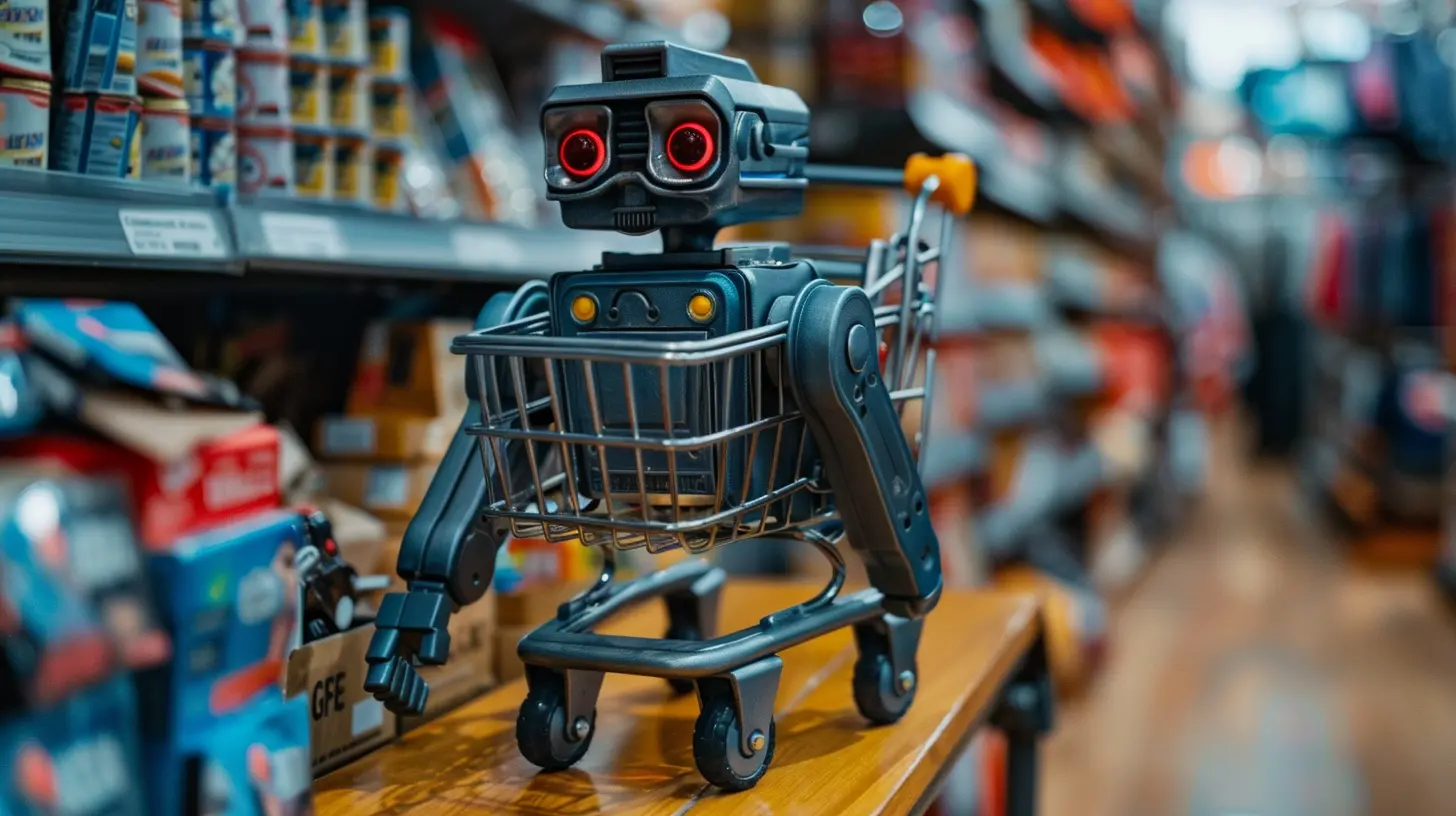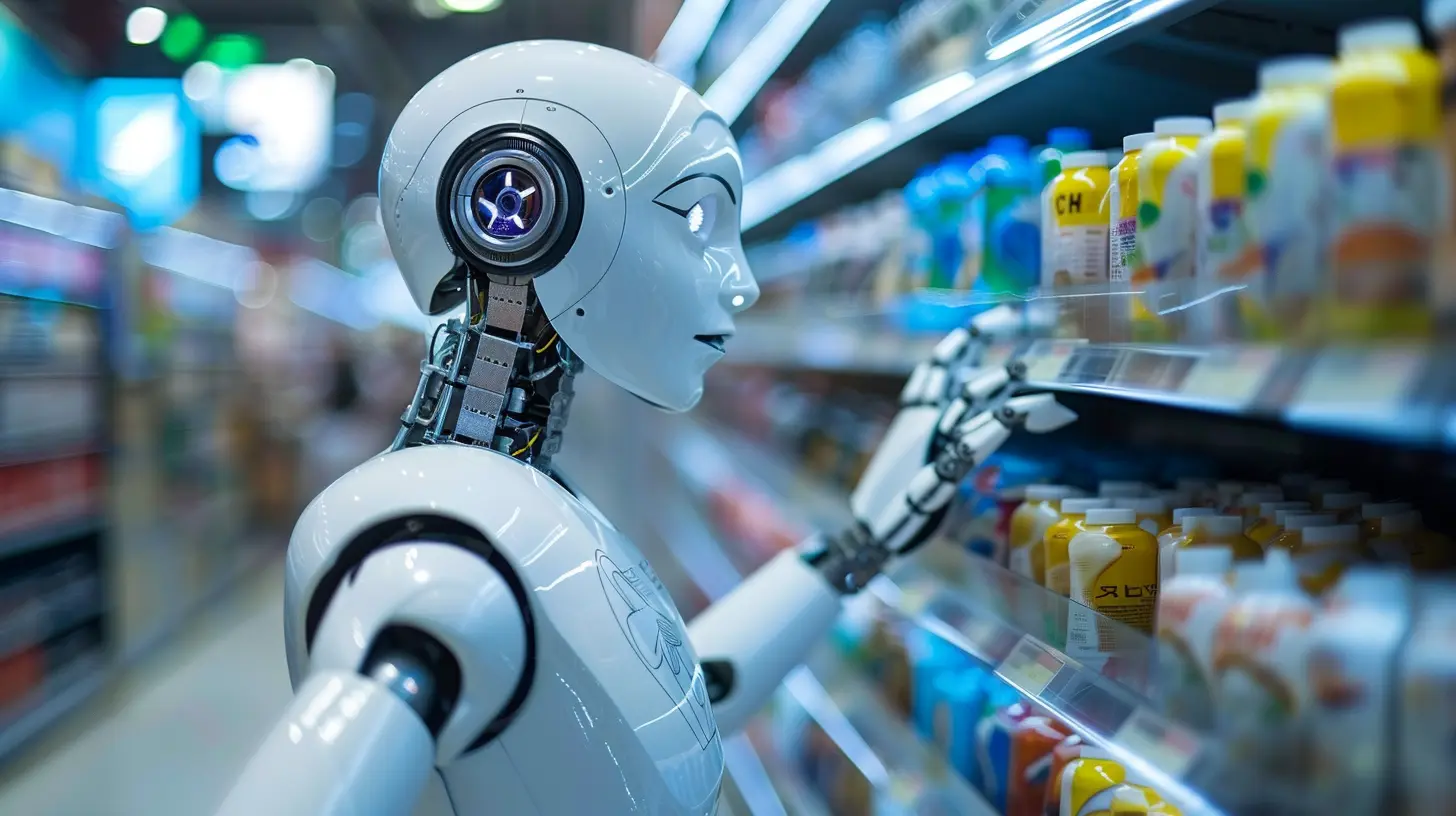How AI is Revolutionizing E-Commerce Platforms
14 August 2025
Artificial Intelligence (AI) is no longer just a buzzword; it's a game-changer, especially when it comes to e-commerce platforms. From product recommendations to virtual shopping assistants, AI is transforming the way we shop online, making things faster, smarter, and more personalized. But how does it all work? And more importantly, how is AI reshaping the future of e-commerce platforms? Well, buckle up, because we're about to dive deep into how this exciting technology is revolutionizing the online shopping world.

The Rise of AI in E-Commerce
Before we get into the nitty-gritty, let's take a moment to appreciate just how far e-commerce has come. Remember when online shopping used to feel like navigating a maze of links and endless product catalogs? Fast forward to today, and thanks to AI, the entire experience is seamless and intuitive. We're talking about personalized recommendations, chatbots that sound almost human, and even algorithms that predict what you'll want to buy before you even know it yourself.AI's integration into e-commerce is growing at a rapid pace, and businesses that fail to adapt may find themselves left in the dust. So, what exactly is AI doing for e-commerce platforms that’s causing such a stir? Let’s break it down.

Personalized Shopping Experiences
Have you ever noticed how after searching for a product, your entire feed is suddenly full of similar items? Creepy? Maybe. Convenient? Absolutely. That’s AI at work.AI algorithms analyze a shopper’s behavior — past purchases, search history, even how long they hovered over a particular product — to offer personalized recommendations. Instead of bombarding you with random products, e-commerce platforms are now able to show you the stuff you actually want.
Product Recommendations
One of the most visible ways AI works in e-commerce is through product recommendations. This isn’t just a simple “people who bought this also bought that” type of deal. AI takes into account multiple data points like browsing history, social media activity, and even past customer reviews to create tailored suggestions. It’s like having a personal shopper who knows your tastes better than you do.Amazon is a great example of this. Their AI-based recommendation system is so fine-tuned that it reportedly drives 35% of their total revenue. That’s huge! And it's not just Amazon either. Most major e-commerce platforms are investing heavily in AI to enhance personalized shopping experiences.
Dynamic Pricing
Ever wonder why the price of a product fluctuates every time you check? That’s AI-powered dynamic pricing at play. It’s like having a savvy negotiator working behind the scenes, constantly adjusting prices based on demand, supply, and even competitor pricing. This ensures that customers get the best possible deal, while companies maximize their profits.Dynamic pricing is particularly useful during peak shopping times, like Black Friday or Cyber Monday, where AI can help retailers stay competitive while still turning a profit.

AI-Powered Chatbots and Customer Service
Let’s face it: waiting for a customer service rep to respond can be frustrating. Enter AI chatbots. These digital helpers are available 24/7, offering instant assistance, answering common questions, and even helping with order tracking or returns. But here’s the kicker: the best AI chatbots are getting so good that it’s hard to tell whether you’re chatting with a bot or a human.Conversational AI
Gone are the days of chatbots spitting out robotic responses. Thanks to advancements in natural language processing (NLP), conversational AI has become much more sophisticated. It can understand context, emotions, and even slang. So, when you type something like, “Hey, I need help with this order,” the AI doesn’t just spit out a canned response. It engages in a meaningful conversation, guiding you through the process, much like a human would.Take e-commerce giant H&M, for example. They’ve incorporated an AI-powered chatbot on their website that helps customers pick out outfits, mixing and matching items based on individual style preferences. It’s like having a personal stylist at your fingertips!
Virtual Shopping Assistants
AI is also stepping up its game with virtual shopping assistants. These AI-powered tools are there to help you find what you need, suggest alternatives, and even complete the purchase for you. Think of them as your new best friend who’s always ready to offer shopping advice.For instance, companies like Sephora have introduced AI-powered virtual assistants that help shoppers find the best makeup based on skin tone and preferences. The AI even goes a step further by offering tutorials on how to apply the products. Shopping for beauty products has never been this easy!

Visual Search and Image Recognition
Have you ever seen a cool pair of shoes on Instagram and thought, “I need those!” but had no idea where to find them? Visual search has got you covered. With AI-powered image recognition, all you have to do is upload a picture of the item, and the platform will show you similar products available for purchase.Shoppable Images
Platforms like Pinterest have introduced shoppable images, meaning you can click on an item within a picture and be taken directly to the purchase page. AI scans the image, recognizes the product, and matches it with items listed on e-commerce platforms. This is especially useful for fashion and home decor sectors, where visual appeal is a big part of the buying process.Augmented Reality (AR) Fitting Rooms
Another cool development is the rise of AR fitting rooms. AI combined with AR allows customers to “try on” clothes or see how furniture would look in their home before making a purchase. For example, IKEA’s app lets you use your phone to place a virtual couch in your living room, so you can see how it fits and looks before buying.This tech doesn’t just stop at furniture. Fashion retailers like Zara and ASOS are also experimenting with virtual fitting rooms, reducing the need for returns and making online shopping more interactive.
AI and Supply Chain Optimization
Behind every great e-commerce platform is a well-oiled supply chain, and AI is making it even more efficient. From inventory management to delivery logistics, AI is streamlining operations to ensure that products make it to your doorstep as quickly as possible.Predictive Analytics for Inventory Management
One of the biggest challenges in e-commerce is managing inventory. Too much stock, and you’re stuck with unsold goods. Too little, and you risk losing customers due to stockouts. AI predictive analytics can forecast demand based on historical data, seasonality, and even current trends. This ensures that businesses keep the right amount of stock on hand without over or underestimating demand.For instance, Walmart uses AI to predict which products will be in high demand during certain times of the year. This allows them to stock up on popular items and avoid running out of stock during peak shopping seasons.
Efficient Delivery and Logistics
AI is also transforming the logistics side of e-commerce. With the help of AI, companies can optimize delivery routes, predict shipping times, and even anticipate potential delays. This results in faster delivery times and better customer satisfaction. Companies like Amazon and UPS are already using AI to streamline their delivery networks, ensuring that packages arrive on time, every time.
Fraud Detection and Security
One of the less glamorous but absolutely critical roles AI plays in e-commerce is in fraud detection. Online shopping has its risks, and cybercriminals are constantly trying to exploit vulnerabilities. But AI is always one step ahead.Fraud Detection Algorithms
AI-powered fraud detection systems analyze thousands of transactions in real-time, looking for patterns that might indicate fraudulent activity. These algorithms can detect unusual spending behavior, flagging potentially fraudulent transactions before they’re processed. This helps protect both the customer and the business from financial loss.For example, e-commerce platforms like Shopify use AI to monitor transactions and prevent fraudsters from taking advantage of their sellers.
Enhanced Cybersecurity
In addition to fraud detection, AI is also improving overall cybersecurity for e-commerce platforms. Machine learning algorithms can identify vulnerabilities in a site’s security infrastructure and patch them up before they can be exploited. This proactive approach helps prevent data breaches and ensures that customers’ personal information remains safe.The Future of AI in E-Commerce
So, what does the future hold for AI in e-commerce? Well, we're still just scratching the surface. As AI continues to evolve, we can expect even more personalized experiences, smarter chatbots, and perhaps even fully autonomous online stores. Imagine a world where you can have a conversation with your AI shopping assistant, ask it to handle your grocery order, and have it delivered via drone in under an hour. Sounds like science fiction, right? But with the rapid advancements in AI, it’s not as far off as you might think.In the near future, we'll likely see AI taking on even more roles in the customer journey, from virtual reality shopping experiences to AI-generated product descriptions that are perfectly tailored to each individual shopper.
Conclusion
AI is revolutionizing e-commerce platforms in ways that were unimaginable just a decade ago. From personalized shopping experiences to cutting-edge visual search and predictive analytics, AI is making online shopping more efficient, more enjoyable, and more secure. The question is no longer if AI will change e-commerce, but rather how much it will transform the industry.As businesses continue to embrace AI, the gap between traditional and AI-driven e-commerce platforms will only widen. Those that adopt AI early will have a significant competitive advantage, while those that don’t may struggle to keep up. One thing’s for sure: the future of e-commerce is AI-powered, and we’re just getting started.
all images in this post were generated using AI tools
Category:
E CommerceAuthor:

Jerry Graham
Discussion
rate this article
1 comments
Sophia Collins
Exciting times ahead! AI really is changing online shopping!
August 23, 2025 at 4:55 AM

Jerry Graham
Absolutely! AI is transforming the online shopping experience, making it more personalized and efficient. Exciting times indeed!


